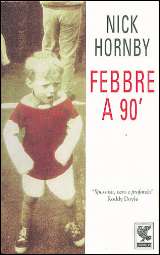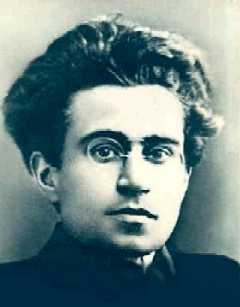
A couple of days ago I overheard some moron in Starbucks pontificating on why the World Cup was an example of objectionable "nationalism" and "jingoism". If only he knew - this World Cup is one of the most interesting examples of how the definition of "nation" and "citizenship" is changing.
People playing for a country other than their country of birth is nothing new: Italy's two world cups in the 1930s were built in part on
oriundi - children of Italian emigrants to South America (modern Italian squads make much less use of
oriundi - in the last decade, only Mauro Camoranesi meets the description). The great Alfredo di Stefano was capped by three countries, as was his Real Madrid teammates Ferenc Puskas, though neither (sadly) won any major tournaments.
Empire has been a major cause of shifting identity in football. Mozambique's Eusebio, for instance, played his entire career for Portugal. Even after the death of empire, though, the pattern of migration continues. In the French squad, Patrick Vieira (Senegal), Calude Makelele (Congo) and Jean-Alain Boumsoung (Cameroun) come from ex-colonies, while Malouda (Guyana), Thuram and Chimbonda (Guadeloupe) come from the "overseas directories" of Guyana which might as well be colonies. Less obviously, England's Owen Hargreaves, born and raised in Calgary, Alberta is an example of the same phenomenon.
But the ties of Empire don't just benefit the metropole. Trinidad and Tobago, for instance, only made it to Germany because of a key goal from Port Vale's very English (and very white) Chris Burchall, who was eligible for selection because his mother was born in Port of Spain. Although he won't be at the World Cup, the same is true of Mali's Fredi Kanoute, who was actually born in France. Angola's Figuereido might appear to be in the same situation, but he at least actually born in Angola, just months before his family fled the country along with the rest of the Portuguese popuation in 1974.
FIFA rules state clearly that a player can only play for the country in which he/she was born, the country(s) in which their parents were born, or the country in which they have citizenship. Because of the increased mobility of players in the last ten years, it is this final clause which is having the greatest effect on this world cup.
Emmanuel Olisadebe was overlooked for years by the Super Eagles while he plied his trade for Polonia Warszawa. Tired of waiting for his chance to play, he took out Polish citizenship in 2001 (a privilege granted with a haste that other immigrants can only dream of) and has been a mainstay of the Polish squad ever since. Earlier this year, incoming Ivoirian Chelsea striker Salomon Kalou tried the same thing in Holland, but failed after coming up against the somewhat less accomodating figure of immigration minister Rita Verdonk, who made headlines worldwie earlier this year for stripping Ayaan Hirsi Ali of her citizenship.
(This year's Dutch squad, by the way, is the least ethnically diverse of any in the past twenty years. Gone are the great Surinamese players - Gullit, Rijkaard, Davids, Kluivert, etc. that once led Eduardo Galleano to label Holland "the best South American team of the '98 world cup. Apart from Ryan Babel and Khalid Boulahrouz - neither of whom are likely to figure prominently in Germany - Holland's 2006 squad is a monchrome one.)
And then, finally, there is the Brazilian Diaspora. Japan's Alex, Spain's Senna, Portugal's Deco, Tunisa's dos Santos and Clayton were all Brazilians who couldn't catch the attention of the selecao, but managed to get naturalized in other countries. With the exception of Senna, all of them have become mainstays of their new countries' squads.
Bazil produces such an astonishing amount of football talent that almost all of FIFA's 205 members could improve by adding a non-selecao Brazilian. This year, there are Brazilians on five world cup teams. With changing international migration patters, we could conceivably see this rise to ten or more by the time World Cup 2014 - presumptively to be held in Brazil - rolls around.
New patterns of identity are constantly evolving in football, even at the national level. The pressures of international competitions such as the World Cup are forcing countries to become more cosmopolitan and less parochial. Does nationalism still surround football? Of course it does. But as the
blanc, beur, noir phenomenon in France has shown, it is now far more likely to be an inclusive nationalism than an exclusive one.
Of this kind of nationalism we can only say "bring it on!"
 Snapped this gem in Berlin last month, stencilled onto the side of an apartment building in Berlin's Mitte district.
Snapped this gem in Berlin last month, stencilled onto the side of an apartment building in Berlin's Mitte district.



























